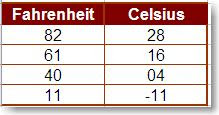Curling
I don’t ski. I hate being cold, and as far as I’m concerned snow is an annoyance.
That was fine when I lived in the Bay Area. I used to take Christmas Eve bike rides and golf on New Year’s Day. That doesn’t work here. I needed something to do once it got too cold for bikes besides cycling sessions in the gym getting ready for Spring, and thinking about California.
So, curling. Yes, you need ice, so it’s cold. But you don’t have snow so you’re not wet, and you sweep, so you’re not as cold as you might think. There is a strategic component, so it’s more like “chess on ice” than “bowling on ice.” Some people curl at a high, competitive level, or at least they aspire to that. Some find the best part of curling is the “social part” of the game, which generally involves drinking. Either way, there is something for everyone.
Like golf, curling has many traditions, much history, and a whole lot of etiquette. Everyone shakes hands before the game and wishes their opponents “good curling.” At the end of the game, everyone shakes hands and thanks their opponents for the game. It’s a great tradition.
I am way too new to curling to explain the rules, which can vary from country to country, unless you are playing by the World Curling Federation rules (See what I mean?), or especially the strategy. Some good resources are here:Curling Basics
Curling shots illustrated. (Flash required)
Canadian Curling Association
The governing body of curling in Canada, bless their hearts. There are links to the Canadian rules, and to various CCA-sanctioned events. There is also an explanation of the points ranking system. (Instant migraine.)
World Curling Federation
This link is to a glossary. (You might need it.)
“Curling For Dummies” by Bob Weeks.
Not a website, an actual --- gasp --- book ! Get it out of the library if you don’t want to spend the money. (US$21.99. CDN$29.99) An easy to understand discussion of the rules, traditions, and history of the game.
There are lots more resources. Everyone has an opinion about the game or the players. Me too. I like curling, because unlike Canada’s two official sports (Yes, there are two. Look it up.), curling does not involve players hitting each other over the head with sticks. It does involve teamwork, skill and sometimes luck.
Canadians like to say that curling is a terrific game for television. That’s probably true, if you are thinking about Canadian television. For years, three commentators on TSN broadcast the really important events. (And these events last a week; they’re not over in three hours.)
Ray, Cate, Vic, Linda
A lot of what I know about the game (admittedly not much) I know from listening to Vic, Ray, and Linda. There is nothing like it. Three Canadians on Canadian television talking about a game revered by Canadians. It’s not like watching Bob Costas. These people actually stop talking sometimes. It takes some getting used to.






